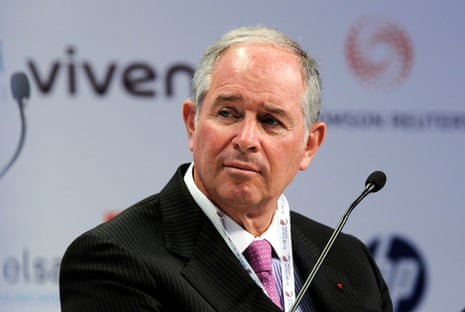The UN’s housing advisor has accused private equity firms and one of the world’s largest corporate residential landlords, Blackstone Group, of exploiting tenants, “wreaking havoc” in communities and helping to fuel a global housing crisis.
In a stinging critique of the role of private equity in the housing market UN rapporteur Leilani Farha and co-author Surya Deva, chairperson of the UN Working Group, singled out Blackstone’s business practices – which they claim include massively inflating rents and imposing an array of heavy fees and charges for ordinary repairs – as having “devastating consequences” for many tenants in countries around the world.
In a series of letters to Blackstone and government officials in Czech Republic, Denmark, Ireland, Spain, Sweden and the US, Farha and Deva accused private equity and asset management firms like Blackstone and its subsidiaries of undertaking “aggressive evictions” to protect its rental income streams, shrinking the pool of affordable housing in some areas, and effectively pushing low and middle-income tenants from their homes.
Blackstone disputed the claims. In a letter to Stephen Schwarzman, Blackstone’s founder and CEO, obtained by the Guardian, the company said the UN report contained “numerous false claims, significant factual errors and inaccurate conclusions”. And the company was “surprised and disappointed” that the UN would “send a communication without verifying your assertions and providing appropriate context”.
Blackstone has, in recent years, acquired hundreds of thousands of homes in the US, Europe, Asia and Latin America, often through subsidiaries, making it one of the largest and most powerful global players in the housing investment sector.
In its reply, Blackstone claimed private equity had helped build the rental market at a time when countries around the world were facing housing shortages and abided by all relevant locals laws.
Farha said the commodification of real estate by private equity investors in recent years had made housing for many people increasingly expensive and precarious: “Landlords have become faceless corporations wreaking havoc with tenants’ right to security and contributing to the global housing crisis.”
The authors also wrote formal letters to six countries, including the US, accusing them of failing to regulate corporate landlords and protect tenants’ human right to secure housing: “We remind all states that while gold is a commodity, housing is not, it’s a human right.”
The UN letter to the US government focuses on the way corporate landlords bought hundreds of thousands of ordinary family houses left empty after their owners defaulted on mortgage payments during the sub-prime crisis of 2008.
The firms were encouraged by US government agencies to acquire the heavily-discounted properties in part because they would bring homes back into use as local economies began to recover from the financial crash.
However, the need to maximize profits to repay investors typically led to a “constant escalation” of housing costs for tenants, primarily by hiking rents – in some cases by 30-50% – and ruthlessly pursuing eviction for non-payment. One corporation issued nearly a third of its tenants with eviction notices, the letter says.
The authors allege that a Blackstone subsidiary in the US, Invitation Homes, imposes charges for minor maintenance repairs and tasks such as removing insect infestations. She alleges that it imposes late rental payments of $100, even if they are just one minute late, or due to an error in Invitation Homes’ computer system.
In its reply, Blackstone said it was a small player in the US rental market, representing 0.5% of the nearly 16m single-family homes for rent in the United States, and that its customer satisfaction and retention rates were in fact higher than average.
Letters outlining similar breaches of housing rights and failure to regulate corporate landlords were also sent to Sweden, Czech Republic, Spain, Denmark and Republic of Ireland, each of which has seen large influxes of corporate rental investment in recent years.
Blackstone disputed these findings too.
Farha has made what she calls the “financialisation” of housing the priority of her tenure as housing rapporteur since 2014, highlighting how the transformation of real estate into an asset class traded on global markets has triggered housing insecurity and homelessness crises in many cities around the world.
A paper she published for the UN two years ago noted how trillions of dollars of investments in hyper expensive apartment blocks in neighbourhoods of major cities from London to Vancouver had put housing beyond the reach of all but the rich, breaking up established communities, and fuelling soaring rents and evictions.
Farha’s investigation into corporate landlords’ treatment of tenants around the world is the subject of a new documentary, Push, which premiered this month. A sub-plot of the film is Farha’s repeated but ultimately doomed attempts to secure a face-to-face meeting with chief executive Schwarzman to discuss its role.
